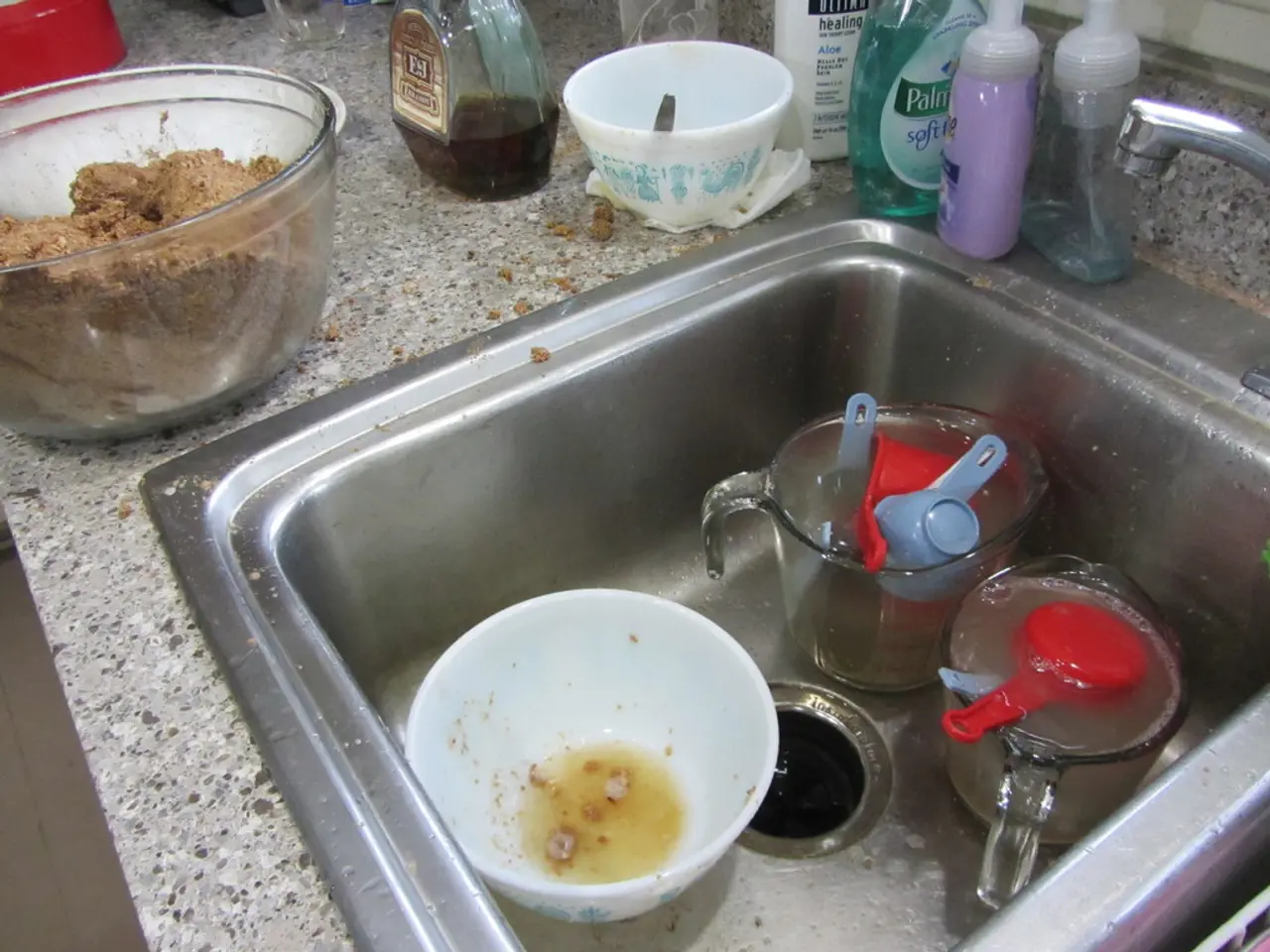Hepatitis C calls for specific safety measures; understanding protective procedures
Preventing the Spread of Hepatitis C: Essential Precautions
Hepatitis C (HCV) is primarily spread through direct contact with the blood of someone carrying the virus. To prevent the transmission of HCV, it's crucial to avoid blood-to-blood contact and follow certain precautions.
Avoid Sharing Needles and Personal Items
Always use new, sterile injection equipment if injecting drugs or receiving medical treatments to prevent HCV exposure. Additionally, do not share personal items that might have blood contamination such as razors, toothbrushes, or nail clippers [1][2][3].
Practice Safe Sex
Using barrier methods, such as condoms and dental dams, during sex can help reduce the risk of sexual transmission, especially if having multiple partners or other sexually transmitted infections [1][2][3].
Ensure All Medical Procedures Use Sterile Equipment
People with HCV should not donate blood, organs, tissues, or semen to prevent transmission [5]. Pregnant women with HCV should be monitored as there is a possibility of mother-to-child transmission; medical guidance should be followed accordingly [1][2]. It's essential to ensure all medical, dental, tattoo, and piercing procedures use sterile equipment from licensed and reputable providers to avoid infection through unsterilized instruments [2].
Maintain Harm-Reduction Practices
In healthcare settings, universal precautions must be followed to protect against bloodborne pathogens, such as HCV. This includes treating all blood and bodily fluids as potentially infectious, using protective equipment, and disposing of used equipment properly [1]. Cleaning up blood spills immediately by wearing gloves and disinfecting using a bleach solution is also crucial [1].
Testing and Monitoring
Testing is essential to know infection status and guide measures to prevent transmission [1][4]. The CDC recommends testing for all adults at least once and more frequently for higher-risk groups [1].
Key Precautions
In summary, key precautions for people with Hepatitis C are strict avoidance of sharing any blood-contaminated items or injection equipment, practicing barrier-protected sex, and ensuring all invasive procedures use sterile tools from trusted providers [1][2][3][4][5]. Other precautions include avoiding rough sex and behaviors that could expose someone to blood during sex, getting tattoos, piercings, and injections from a licensed professional, avoiding activities that could expose someone to blood while there is an open wound, such as kissing, and avoiding sex during menstruation to reduce the risk of HCV transmission [1][2][3].
[1] Centers for Disease Control and Prevention (CDC). (2021). Hepatitis C FAQs for the Public. Retrieved from https://www.cdc.gov/hepatitis/hcv/cfaq.htm
[2] World Health Organization (WHO). (2020). Hepatitis C. Retrieved from https://www.who.int/news-room/fact-sheets/detail/hepatitis-c
[3] National Institute of Diabetes and Digestive and Kidney Diseases (NIDDK). (2021). Hepatitis C. Retrieved from https://www.niddk.nih.gov/health-information/liver-disease/hepatitis-c
[4] American Liver Foundation. (2021). Hepatitis C. Retrieved from https://www.liverfoundation.org/for-patients/about-the-liver/diseases-of-the-liver/hepatitis-c/
[5] Mayo Clinic. (2021). Hepatitis C. Retrieved from https://www.mayoclinic.org/diseases-conditions/hepatitis-c/symptoms-causes/syc-20365314
- To safeguard against Hepatitis C, it's important to prioritize health-and-wellness practices that include following precautions such as avoiding accidental falls and falls due to chronic-diseases, as they may increase the risk of blood transmission.
- In addition to the essential precautions against Hepatitis C, it's equally important to educate ourselves about science and medical-conditions to understand the implications of healthcare practices, personal hygiene, and health standards in preventing the spread of infectious diseases like HCV.




